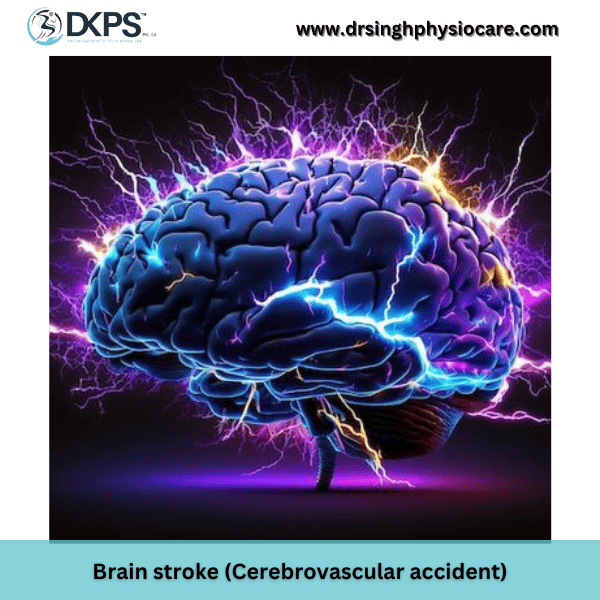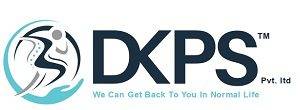- Home
- About Us
- DKPS Dealing
- BLOG
- Delhi NCR
- Delhi
- Physiotherapy at Home Near Me | Physiotherapist in South Delhi
- Best Chiropractor in Delhi
- Physiotherapist in Delhi
- Cupping Therapy in Delhi
- Home Nursing Services in Delhi
- Needle Therapy for Back Pain
- Sports Injury Physiotherapy
- Best Physiotherapist Visit at Home in Rohini Sector 24
- Physiotherapy at Home In Rohini Sector 9 |
- Physiotherapist in Pitampura | Physiotherapy at Home in Pitampura
- Physiotherapy at home in Rohini sector 29
- Physiotherapist in Paschim Vihar
- Physio home visit | Home Visit Physiotherapy |
- Physiotherapist in Saket | Best Physiotherapist in Saket |
- Physiotherapist In Janakpuri | Best Physiotherapist in Janakpuri |
- Best Physiotherapist in Punjabi Bagh | Punjabi Bagh Physiotherapist |
- Best Physiotherapist Service at Home in Dwarka, Delhi
- Best Physiotherapist in Chandigarh at Home Visit
- Faridabad
- Gurugram
- Noida
- Best Physiotherapy Gorakhpur
- Best Physiotherapist in Lucknow | Physiotherapist in Lucknow near me |
- Delhi
- Mumbai
- Delhi NCR
- Department
- Doctors
- Gallery
- Packages
- Contact Us
- Home
- About Us
- DKPS Dealing
- BLOG
- Delhi NCR
- Delhi
- Physiotherapy at Home Near Me | Physiotherapist in South Delhi
- Best Chiropractor in Delhi
- Physiotherapist in Delhi
- Cupping Therapy in Delhi
- Home Nursing Services in Delhi
- Needle Therapy for Back Pain
- Sports Injury Physiotherapy
- Best Physiotherapist Visit at Home in Rohini Sector 24
- Physiotherapy at Home In Rohini Sector 9 |
- Physiotherapist in Pitampura | Physiotherapy at Home in Pitampura
- Physiotherapy at home in Rohini sector 29
- Physiotherapist in Paschim Vihar
- Physio home visit | Home Visit Physiotherapy |
- Physiotherapist in Saket | Best Physiotherapist in Saket |
- Physiotherapist In Janakpuri | Best Physiotherapist in Janakpuri |
- Best Physiotherapist in Punjabi Bagh | Punjabi Bagh Physiotherapist |
- Best Physiotherapist Service at Home in Dwarka, Delhi
- Best Physiotherapist in Chandigarh at Home Visit
- Faridabad
- Gurugram
- Noida
- Best Physiotherapy Gorakhpur
- Best Physiotherapist in Lucknow | Physiotherapist in Lucknow near me |
- Delhi
- Mumbai
- Delhi NCR
- Department
- Doctors
- Gallery
- Packages
- Contact Us
Archives
- Home
- Archives

What is brain stroke (Crebro vascular accident)
Introduction:
Brain Stroke (Cerebro Vascular accident) is a medical emergency condition that occurs when blood circulation to the brain is interrupted or reduced, leading to damage to brain cells and tissue. It is a prominent cause of disability or death worldwide. Understanding the causes, signs, symptoms, diagnosis, and treatment options, including physiotherapy, is crucial in managing stroke effectively.
Causes of Stroke:
There are two main types of stroke ischemic stroke and hemorrhagic stroke. Ischemic stroke occurs when a blood vessel supplying blood to the brain is dammed, generally due to a blood clot.
Hemorrhagic stroke occurs when a weakened blood vessel ruptures and bleeds into the girding brain towel. threat factors for stroke include high blood pressure, smoking, diabetes, rotundity, high cholesterol, and a sedentary life. Other threat factors include age, family history of stroke, and certain medical conditions similar as atrial fibrillation and carotid roadway complaint.
Signs and Symptoms:
The signs and symptoms of stroke can vary depending on the type of stroke and the area of the brain affected. Common symptoms include sudden weakness or numbness on one side of the body, difficulty speaking or understanding speech, confusion, trouble seeing in one or both eyes, dizziness, and severe headache.
It is essential to recognize these symptoms and seek immediate medical attention as early intervention can significantly improve outcomes.
Investigations and Blood Checkup:
When a patient presents with symptoms suggestive of stroke, a thorough medical evaluation is necessary. This may include a physical examination, neurological assessment, imaging tests such as CT scan or MRI, and blood tests to assess clotting function, cholesterol levels, and other relevant parameters.
Diagnosis:
The diagnosis of stroke is based on clinical evaluation, imaging studies, and laboratory tests. Imaging tests such as CT scan or MRI can help identify the type and location of the stroke, while blood tests can rule out other conditions that may mimic stroke symptoms.
Precautions:
Preventing stroke involves managing risk factors such as controlling blood pressure, maintaining a healthy weight, exercising regularly, quitting smoking, and managing underlying medical conditions such as diabetes and high cholesterol. It is essential to follow a healthy lifestyle and adhere to prescribed medications to reduce the risk of stroke.
Treatment:
Treatment for stroke depends on the type, severity, and timing of the stroke. In ischemic stroke, the goal is to restore blood flow to the brain quickly. This may involve administering clot-busting medications such as tissue plasminogen activator (tPA) or performing a mechanical thrombectomy to remove the clot surgically.
In hemorrhagic stroke, the focus is on controlling bleeding and reducing pressure on the brain. This may require surgery to repair the damaged blood vessel or remove excess blood from the brain.
Physiotherapy Treatment under the Guidance of Dr. KP Singh:
Physiotherapy plays a crucial role in the rehabilitation of stroke patients. Dr. KP Singh, a leading physiotherapist at DKPS Pvt Ltd, specializes in providing comprehensive rehabilitation programs tailored to the individual needs of stroke patients.
Under Dr. Singh’s guidance, physiotherapy treatment aims to improve mobility, strength, balance, and coordination in stroke survivors. This may include exercises to improve muscle tone and flexibility, gait training, balance exercises, and functional activities to promote independence in daily tasks.
Conclusion:
Stroke is a devastating condition that can have profound consequences on a person’s quality of life. Early recognition of symptoms, prompt medical intervention, and comprehensive rehabilitation are essential for optimizing outcomes in stroke patients. Physiotherapy, under the expert guidance of professionals like Dr. KP Singh, plays a vital role in helping stroke survivors regain function and independence, ultimately improving their overall well-being and quality of life.
Other Places where we provide Physiotherapy Services at Home
- Physiotherapy at home in Rohini sector 24
- Physiotherapy at home in Rohini
- Physiotherapy at home in Budh vihar
- Physiotherapy at home in pitampura
- Physiotherapy at home in Panjabi bagh
- Physiotherapy at home in Rani bagh
- Physiotherapy at home in Ashok vihar
- Physiotherapy at home in shastri nagar Delhi
- Physiotherapy at home in inderlok Delhi
- Physiotherapy at home in kanhaiya Nagar Delhi
- Physiotherapy at home in paschim vihar
- Physiotherapy at home in Vikas Puri
- Physiotherapy at home in Karol bagh
- Physiotherapy at home in Rajendra place delhi
- Physiotherapy at home in Patel Nagar Delhi
- Physiotherapy at home in Shadipur delhi
- Physiotherapy at home in Kirti Nagar Delhi
- Physiotherapy at home in moti nagar Delhi
- Physiotherapy at home in Noida
- Physiotherapy at home in Gaziyabad
- Physiotherapy at home in Gurgaon
- Physiotherapy at home in Faridabad
- Physiotherapy at home in burari
- Physiotherapy at home in sangam vihar
- Physiotherapy at home in Gandhi vihar
- Physiotherapy at home in mukherjee nagar
- Physiotherapy at home in jagatpur village
- Physiotherapy at home in gopalpur
- Physiotherapy at home in civil line
- Physiotherapy at home in delhi university
- Physiotherapy at home in Mumbai
- Physiotherapy at home in GTB nagar
- Physiotherapy at home in model town
- Physiotherapy at home in kamla nagar
- Physiotherapy at home in nirankari colony
- Physiotherapy at home in Chauhanpatti
- Physiotherapy at home at khjuri khas
- Physiotherapy at home in Bhajanpura
- Physiotherapy at home in Ankur vihar
- Physiotherapy at home in tronica city
- Physiotherapy at home in Jhaghirpuri
- Physiotherapy at home in Okhla delhi
- Physiotherapy at home in shaeen bagh delhi
- Physiotherapy at home in houz khash Delhi
- Physiotherapy at home in Narela delhi
